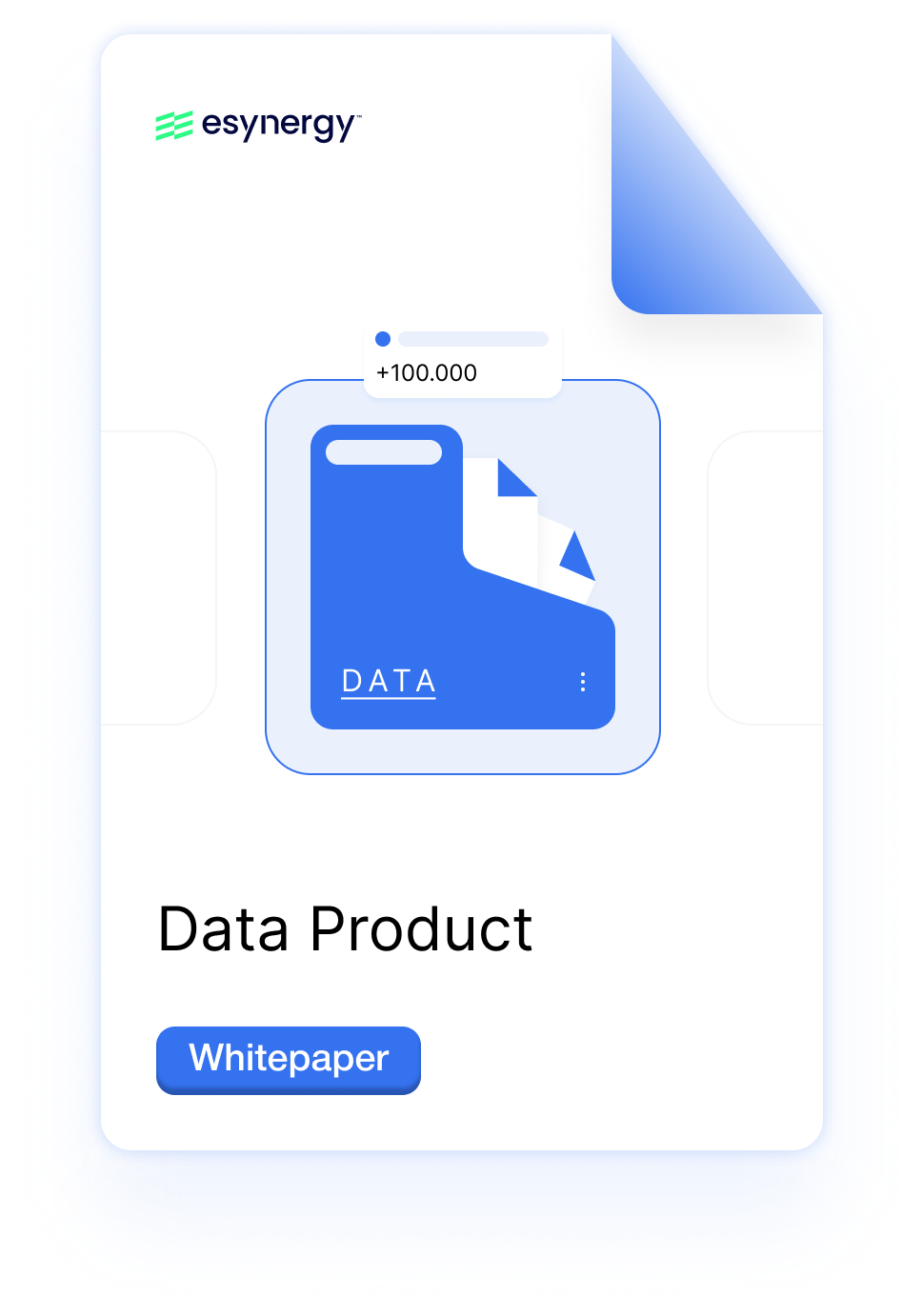Whitepaper
Data products - what they are, why they matter and how to get started
An incredible range of exciting new data use cases are starting to become realistic for enterprise businesses

Topics
What you will learn
The data product approach puts creating value for the customer at the heart of your business.
What are data products?
What are the limits of existing approaches?
The key components of a data product approach
The benefits of a killer data product approach
How do you begin the transformation?
What do you need to get started?

About us
esynergy is a technology consultancy, delivering business value from cloud computing.
Our delivery teams are small and highly functional, formed by a vetted ecosystem of associates, luminaries and partners. We choose technologies that are the right fit for our clients’ needs and are not opinionated around specific tech stacks and service offerings.
Our philosophy is around impact consulting, which means that all our work is measurable and directly ties back to our clients’ business objectives. This approach is at the heart of all our engagements with the objective of added value and insight for our clients.
Igniting Technological Innovation
Discover expert insights on digital transformation

Sportradar's Edge: Accelerating innovation and elevating efficiency in sports analytics

Platform build

Demystifying GenAI: Transforming the insurance landscape
Unlocking Data At Marie Curie
Neal Venables
20 mins

Maximizing data governance: how to accelerate growth with your data products
In-person
